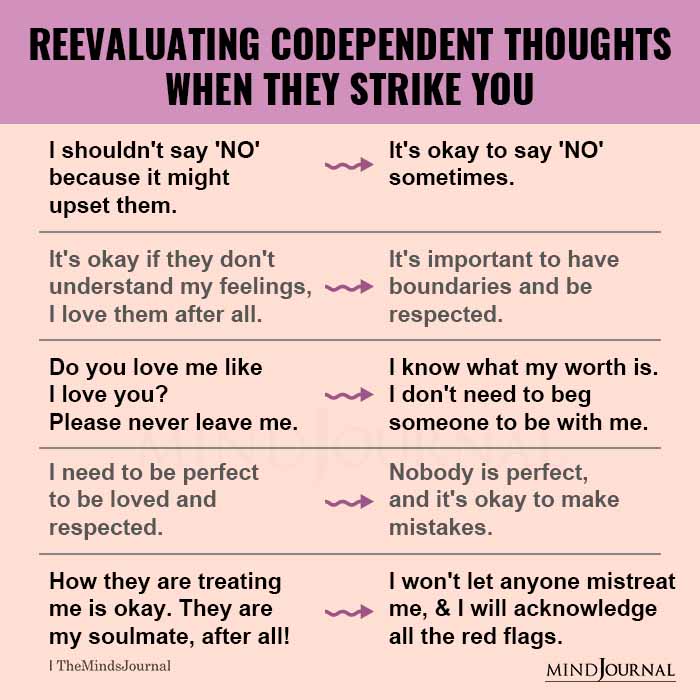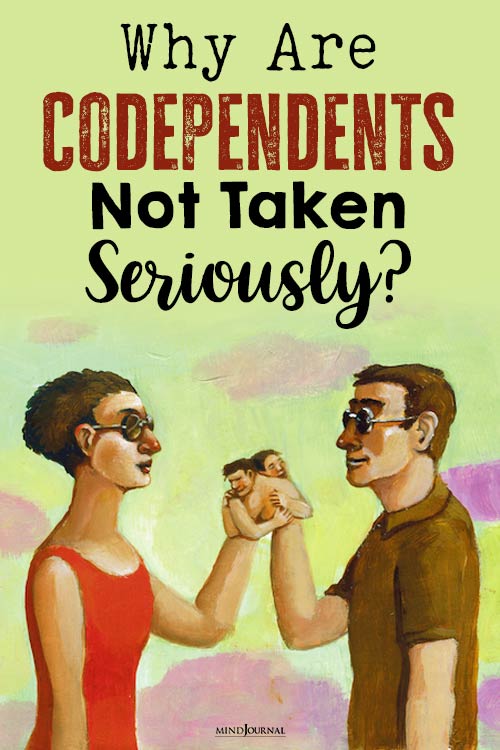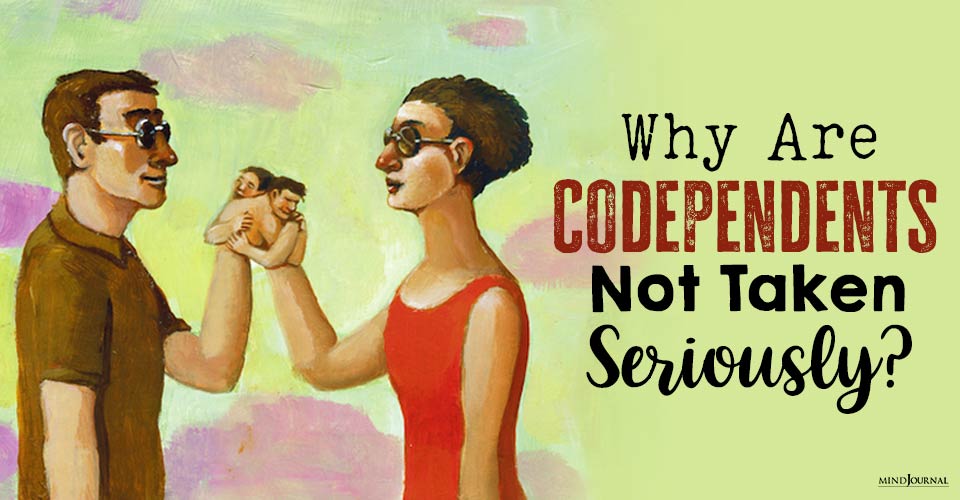Knowing about codependents and the different types of codependency can help you understand it better, and if you suspect that you’re one, then you can take the appropriate steps to deal with it.
The following content is derived from “The Human Magnet Syndrome: The Codependent Narcissist Trap” (2022)
When Your Disorder Is A Joke
“What’s in a name?” Well, Mr. Shakespeare, in the mental health field, quite a bit! Hence, providing hope to legions of people suffering from codependency requires, at the very least, a professional consensus on what it is, diagnostic criteria that establish it, and standardized treatment that specifically connects to both.
Like fake news or soundbites are mistaken for facts, inaccurate mental health terms cause more harm than good. “Codependency” is a prime example of a poorly understood mental health condition. Forty-plus years after it was first coined, it remains the unwieldy multi-headed monster of a disorder that still defies attempts to categorize, name, describe and diagnose it.
Without a consensus on its name, description, and symptoms demonstrating it, we are prolonging suffering and hopelessness for codependents who, in my experience, are suffering more deeply than most can imagine.
Related: 5 Types Of Codependency And Codependent Personality Types
Like other mental health terms, codependency has been reshaped to fit its mainstream use. Unfortunately, the original definitions are often diluted over time, especially when they pique the interest of news and media sources.
To the general public, a codependent is a weak, needy, clingy, and even emotionally sick person who often lacks common sense and sometimes intelligence.
There is little consensus in the mental health field for what it is; the people who profess to specialize in it have little direction and experience in solving a problem about which they claim to know a lot. To that end, codependency treatment is driven by a loose association of psychotherapy techniques that represent the clinician’s personal experiences than their history of providing successful treatment outcomes.
Therefore, it is incumbent upon the mental health field to admit its failings while considering revamping the cartoon-like depiction of what is a debilitating mental health disorder.
Perhaps the “cherry” on top of this not-so delicious “codependency sundae” is that many people in the helping professions begin their careers as untreated codependents. Many of them live knee-deep in their own personal and relational dysfunction, then it is time to tell “Houston” that “we have a serious problem.”

Out With The Old And In With The New
Codependency is a pathological mental health condition that manifests in individuals (codependents) who are predictably and reflexively attracted to harmful, selfish, and self-absorbed Pathological Narcissists.
The powerful and difficult to resist opposite attraction dynamic illustrated in my “Human Magnet Syndrome” books account for the instant explosion of euphoric “chemistry” between “caregiving” codependents and “care-taking” Pathological Narcissists.
Codependency is not just limited to romantic couplings, as it manifests itself in varying degrees in most other significant relationships.
Predictably and reflexively, codependents repeatedly find themselves in dysfunctional relationships with Pathological Narcissists. They give most, if not all, of the love, respect, caring, and trust (LRCT), hoping someone will willingly reciprocate it.
Unfortunately, by virtue of narcissists’ Personality Disorder, most are not interested, nor willing, and to some degree, unable to participate in a relationship based on the mutual distribution of love, respect, caring, and trust (LRCT).
An exception is when the narcissist gains something or has a relationship advantage by pretending to be mutually expressing LRCT.
Codependents mistakenly believe the only solution to the LRCT inequality dilemma is to double down and try harder to “fix” the wayward narcissist, or worst, fall victim to a form of emotional dissociation, where the pain of caring is effectively anesthetized.
The prospect of being painfully alone fueled their lifelong delusion that with time, patience, and sacrifice, the narcissist lover will willingly correct their errant ways, sincerely apologize for them, willingly change them, and, as a result, recreate the long-lost soulmate bliss.
Codependents are reluctant to terminate the relationship because of the very real fear of Pathological Loneliness, Codependency Addiction’s most intolerable withdrawal symptom.
However, suppose they or their narcissistic partner end the relationship to avoid the reemergence of pathological loneliness. In that case, they will quickly find another source of their “drug of choice” and subsequently rebound into another “soulmate” turned “cellmate.”
Related: What Is Anxious Attachment Style: Signs, Causes, and How To Cope
To Diagnose Or Not To Diagnose, That Is “The Question”
Too many practitioners, qualified or not, overstep their abilities by hastily throwing out ill-conceived diagnoses like treats to children lined up for a Fourth of July parade. A universally embraced and robustly reliable definition should come with an equally accurate list of diagnostic criteria.
The below five examples illustrate why we as a society should not try to change the treatment and diagnostic set of rules and practices that have been already established.
1. Not all mental health professionals are qualified or even allowed to provide diagnoses. Typically, only Psychiatrists, licensed Master’s, and Doctoral practitioners with specific mental health education, training, and experiences are allowed to provide professional diagnoses.
2. It seems that a large percentage of Master’s level clinicians, whose license enables them to diagnose, lack the specific education, training, and work experience to perform such a crucial task adequately.
3. Not all mental health professionals are qualified or even allowed to provide diagnoses. Yet they do, all the time – on social media and streaming sites like YouTube, Instagram, Facebook, and TikTok. An overabundance of non-mental health practitioners dangerously pretending to be something they are not has been disturbing over the last five years. Unfortunately, public figures with the most popularity are the ones who are deemed the most “expert.”
4. The tendency to rely on personality characteristics, co-occurring mental health and substance abuse problems, anger, dishonesty, and an inestimable number of other factors when diagnosing codependency. This is indeed an over-reach because the disorder I know as “Codependency” is independent of such general factors.
5. When gaslighting victimization is not recognized or is not considered in an evaluative process, forming a diagnosis would be irresponsible. A simple illustration of the importance of ruling out gaslighting prior to arriving at a diagnosis is the codependent client who is gaslighted to believe he has Narcissistic Personality Disorder.
Since codependency and narcissism are mutually exclusive or, according to the Human Magnet Syndrome theories, opposite, it is then impossible to be both simultaneously. Because many mental health professionals are unaware of this connection, it is frightening to consider the resulting rabbit hole in which the therapist and client could get lost.

Codependency Personality Types
An accurate codependency diagnosis requires familiarity with separate and interacting independent psychological variables. For example, consider the following “negative” examples: substance abuse, addiction, dishonesty, manipulation, and anger problems.
Since they do not fit the “kind, patient, and chronically caregiving” codependency stereotype, it might be easy to justify a non-codependency diagnosis.
Whether it is a bad habit, mental illness, substance abuse problem, or harmful pattern of behavior toward self or others, a clinician should not be lulled into seeing them through a “narrow psychological vision.” To that end, the following Codependency Personality Types will add clarity to the problem instead of muddying up the waters.
Although each is substantially different “on the outside,” all account for the same basic Codependency LRCT distribution dilemma.
Active Codependents mistakenly believe the only solution to the LRCT distribution imbalance is to be even more hyper-aware and diligent about changing their narcissistic partner’s ways.
Passive Codependents resign themselves to a dissociated-like destiny of passivity and acceptance.
Oblivious Codependents dissociate from their misery by upholding an unsupported belief that what we do not see is simply not there.
Cerebral Codependents believe that the more information they know and the more healing, growing, and/or transformational activities they participate in, the more they can overcome codependency.
Anorexic Codependents protect themselves from a lifetime pattern of narcissistic abuse by “starving” themselves from any form of emotional, relational, and sexual intimacy. By welding shut the romance “spigot,” they experience safety, but at the cost of constant disassociation.
Related: What Is Codependency And Changing Codependent Dynamics in Abusive Relationships
Summary
The mental health field should develop a more specific understanding of the problem known as “Codependency.” With an accepted accurate definition and accompanied diagnostic criteria, treatment for the problem will have a fighting chance of helping.
With such standardization, codependents, and clinicians who want to help them, will herald in a new era of codependency treatment that works!
The stakes are high as, without such updates and changes, legions of codependents are destined to wander blindly into the arms of Pathological Narcissists and create the next generation of the problem that never seems to go away.
Want to know more about what is a codependent relationship? Check this video out below!
Check out Ross Rosenberg’s website for more informative articles.
Written By Ross Rosenberg Originally Appeared On Self Love Recovery









Leave a Reply
You must be logged in to post a comment.